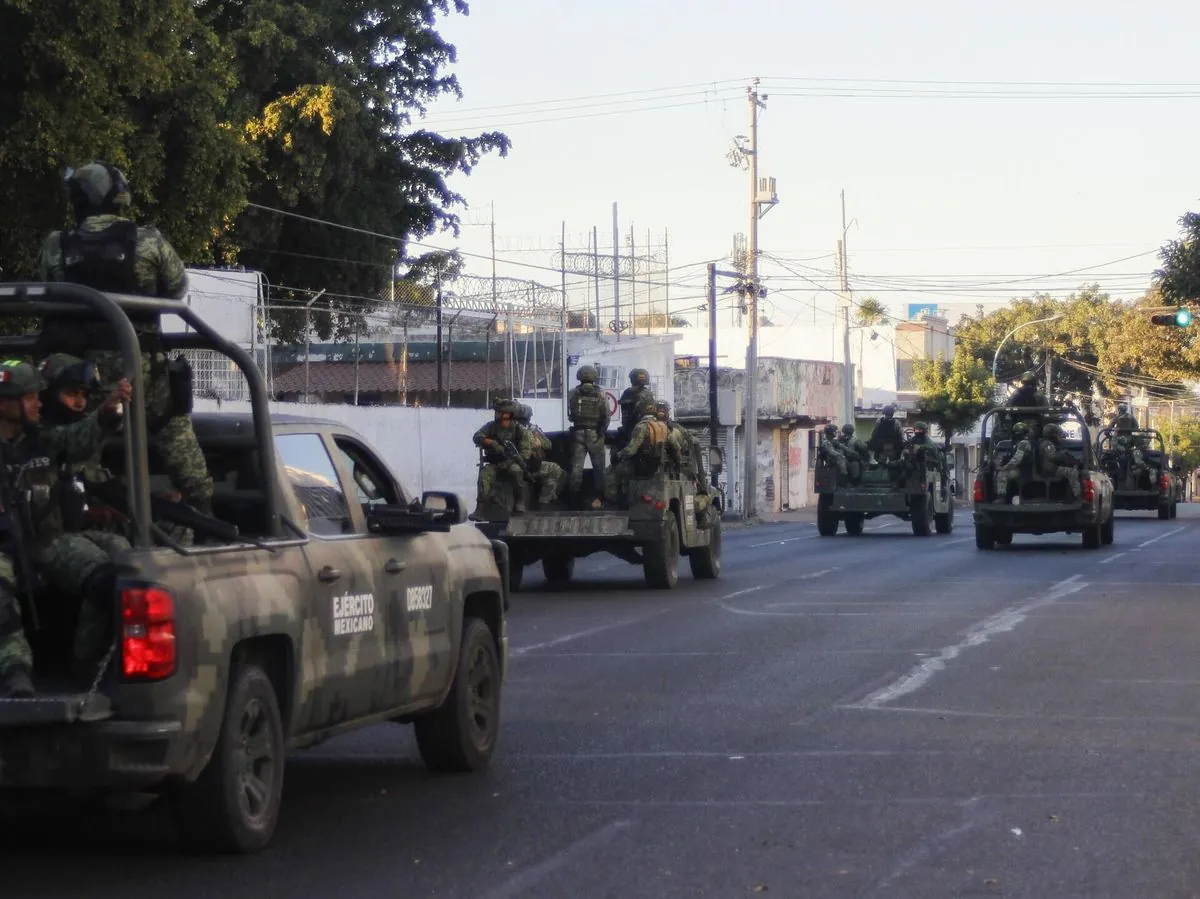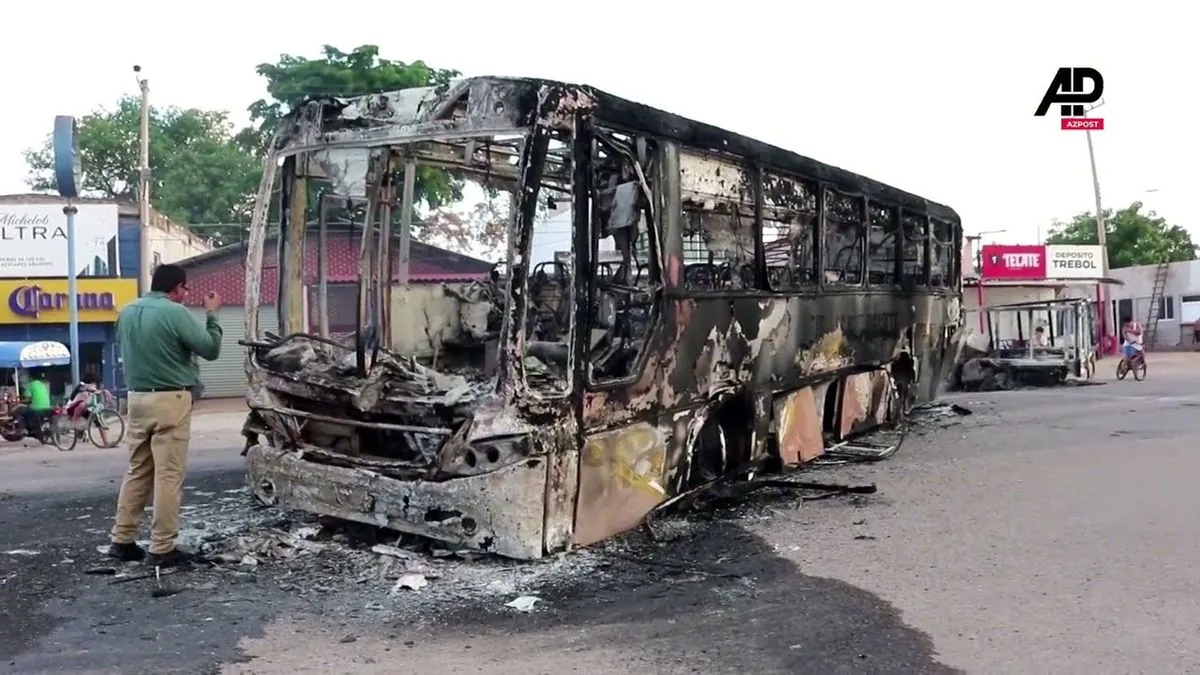Sinaloa Violence Escalates: Celebrations Canceled, Schools Closed
Internal conflict within the Sinaloa Cartel leads to violence in Culiacan, Mexico. Authorities cancel national day celebrations and close schools as tensions rise following the arrest of a cartel leader.

In a concerning turn of events, the western Mexican state of Sinaloa has experienced a surge in violence, prompting authorities to take drastic measures. The escalation stems from internal conflicts within the Sinaloa Cartel, one of the world's most powerful drug trafficking organizations founded in the late 1980s.
As of September 13, 2024, the violence has resulted in 12 fatalities since the beginning of the week. In response, officials have canceled national day celebrations scheduled for September 15 and closed educational institutions across the state.
Culiacan, the state capital with a population of nearly one million, has become a hotbed of unrest. Residents have reported frequent shootouts, gunfire, and the presence of burnt-out vehicles. Social media platforms have been flooded with footage depicting convoys of heavily armed individuals traversing major thoroughfares in Sinaloa.
The root cause of this turmoil can be traced back to late July 2024, when Ismael "El Mayo" Zambada, a prominent figure in the cartel for decades, was apprehended in the United States. Zambada, believed to be in his mid-70s, has made allegations that a senior member of the Los Chapitos faction kidnapped him and forcibly transported him to the US.

This incident has exacerbated tensions between the two most influential factions within the Sinaloa Cartel, which has a presence in over 50 countries and is known for its sophisticated smuggling methods, including the use of tunnels along the US-Mexico border.
The impact on daily life in Culiacan has been significant. Public transportation is operating at reduced capacity, with many residents opting to shelter in their homes and avoid commuting to work. The state government, led by Ruben Rocha Moya, has prioritized the safety of children and young people in its decision-making process.
"We need to continue to look after them."
In response to the crisis, Mexico's federal government has deployed over 500 special soldiers to Sinaloa. This move aligns with the country's increased reliance on military forces to combat drug cartels since the mid-2000s, particularly following the launch of the war on drugs in 2006.
Andres Manuel Lopez Obrador, the outgoing President of Mexico, has emphasized the military's role in maintaining order. He stated that authorities are working to minimize the impact on the general population and prevent further escalation of violence between rival factions.
It's worth noting that Sinaloa state has a long history of drug cultivation and trafficking, being a major producer of marijuana and opium poppies. The current situation highlights the ongoing challenges faced by Mexican authorities in their efforts to curb cartel activities and ensure public safety.
As the conflict unfolds, the cancellation of celebrations related to Mexican Independence Day, traditionally observed on September 16th, underscores the severity of the situation. The Sinaloa Cartel's involvement in various legitimate businesses as part of money laundering operations further complicates efforts to dismantle its operations.
The international community watches closely as Mexico grapples with this latest outbreak of cartel-related violence, which continues to pose significant challenges to the country's security and stability.


































